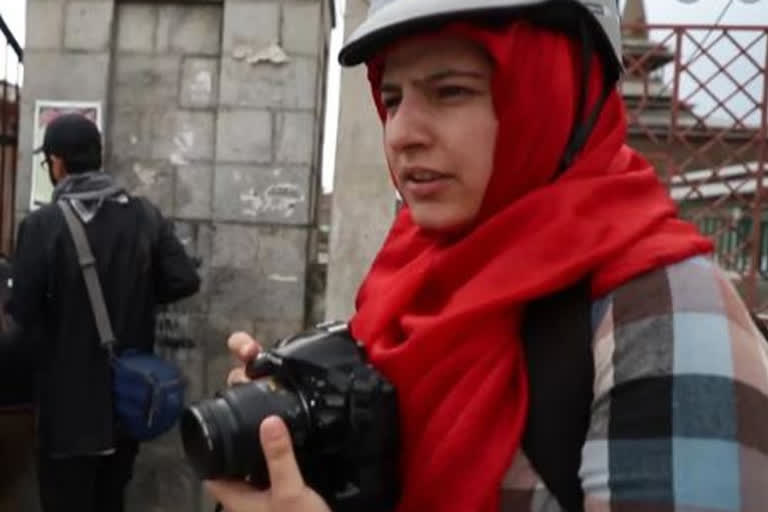Srinagar: The slapping of Unlawful Activities (Prevention) Act (UAPA) by Jammu and Kashmir Police on the journalists for using social media is a violation of the right to freedom of speech and expression, according to law experts.
"Freedom of expression is a fundamental right of every citizen including journalists. Everyone can express his or her views on anything but under the limitations of the constitutions. We can criticize the Supreme Court's judgements, write opinion pieces against the government decisions. The constitution enables you to do this because it is a constructive process," Riyaz Khawar, Senior Advocate Jammu and Kashmir High Court told ETV Bharat.
He further said: "Journalism is one of the pillars of democracy and it's a duty of a journalist to keep a watch on the working of the other three pillars. According to Article 19(1)(a) of Indian Constitution, all citizens have the right to freedom of speech and expression. So if Gowhar Geelani, Peerzada Ashiq and Masrat Zahra have been booked for sharing their work on social media then the step of the administration is against the constitution of India."
Talking about the UAP Act, he said, "The law was first implemented in 1966. Since then the Act was amended three times and the latest being in August 2019. This law was actually formed for putting an end to anti-national activities. Later on, terrorism was also included in the Act. Under this law, a person can serve a jail term of 3 to five year or can be exceeded as a life term."
According to Khawar, the bail provision under UAPA is very complicated and takes a lot of time and energy.
Also read: PM Modi ranked top among global leaders in fight against COVID-19: Nadda
"Under section 43(d), the judge goes by the investigation or the statement submitted by the law enforcing agencies. This provision under UAPA appears like it is against the constitution because the petitioner or the applicant for the bail has no direct right to plead not guilty. He or she has to go by the wisdom of the Honourable judge," he said.
Echoing similar views, Jammu Kashmir High Court Advocate Shabir Pinga feels that slapping of UAPA on journalists is a cruel step taken by the administration.
"Like everyone, journalists too can express their views. They have an added responsibility to point out wrongs in society. They can very much criticise the decisions of the government, courts or politicians. UAPA is for the persons involved in the anti-national activities and I don't think a professional journalist could even indulge in such a thing," Pinga told ETV Bharat.
He said that the most interesting part of this Act is that the judge has to go by the statement of administration or the law enforcing agencies.
"The police slap UAPA on a person, then the judge has to follow their statement. Accused have no direct say in anything. This is a very surprising point in this law," Pinga said.
In the last two days, three journalists working in the Valley have been booked under various laws by the state police. Young independent photojournalist Masrat Zahra and Senior Correspondent with the English daily "The Hindu" Peerzada Ashiq were booked on Monday while another renowned journalist and author Gowhar Geelani were booked on Tuesday evening.



